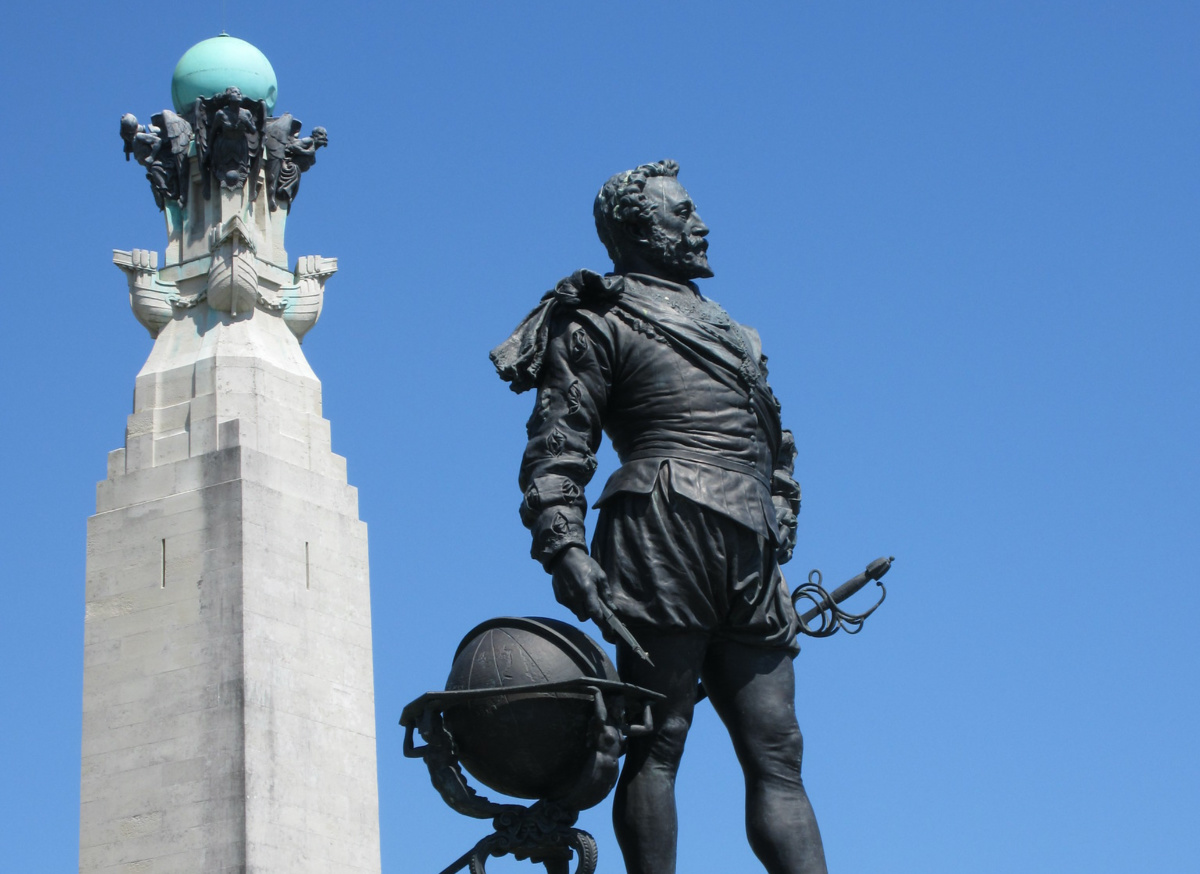
DAVID ADAMS looks at a prayer attributed to 16th century English adventurer Sir Francis Drake…
Disturb us, Lord, when
We are too well pleased with ourselves,
When our dreams have come true
Because we have dreamed too little,
When we arrived safely
Because we sailed too close to the shore.
Disturb us, Lord, when
With the abundance of things we possess
We have lost our thirst
For the waters of life;
Having fallen in love with life,
We have ceased to dream of eternity
And in our efforts to build a new earth,
We have allowed our vision
Of the new Heaven to dim.
Disturb us, Lord, to dare more boldly,
To venture on wider seas
Where storms will show your mastery;
Where losing sight of land,
We shall find the stars.
We ask You to push back
The horizons of our hopes;
And to push into the future
In strength, courage, hope, and love.

A statue of Sir Francis Drake in Plymouth, England. PICTURE: NH53 (licensed under CC BY 2.0)
This prayer, often also simply called ‘Drake’s Prayer’, is usually attributed to 16th century English explorer and soldier Sir Francis Drake. He is generally said to have prayed it as a he left Portmouth in England aboard his ship, Golden Hinde, on a mission to raid Spanish assets in South America in 1577.
It was the voyage on which Drake would then head north and claim California and Oregon for England before, having famously circumnavigated the globe, returning home with a vast fortune in gold.
But there are some who don’t believe he wrote the prayer, which is also found in shortened versions, because the language is too modern.
Whatever its origins, the prayer is all about dreaming big in God and not allowing oneself to miss out on the life He has for us because we were too content in our safe comfort zone. It speaks of the importance of not allowing the mundane things of life to crowd out our experience of God, of trusting Him in all things even when the outcome seems uncertain.
It’s not the only prayer attributed to Drake. There’s also a much shorter prayer which is often given the same name, aka, ‘The Drake Prayer’. It runs very differently: “O God, who are the lover of justice and peace: give Thy grace, we humbly beseech Thee, to those who now guide the counsels of the nations; and so lead them by Thy Holy Spirit, that by word and by deed they may promote Thy glory, and set forward peace and good will among men; through Jesus Christ our Lord. Amen.”
This particular prayer was one of those offered at the funeral of the Earl of Mountbatten in Westminster Abbey following his murder in a terrorist attack off the coast of Northern Ireland in 1979.
This prayer may have its origins in a letter written by Drake to Sir Francis Walsingham, the English Secretary of State, on 17th May, 1587. According to Church of Ireland priest Patrick Comerford, a passage from the latter was adapted by Eric Milner-White (1884-1963), a dean of King’s College, Cambridge, and included in a collection of prayers he published in 1941 with the words ‘after Francis Drake’.
The misattribution of the prayer came, says Comerford, after an official form for the National Day of Prayer in the US in 1941 stated that the prayer was “by Sir Francis Drake”. It was thereafter repeated.





